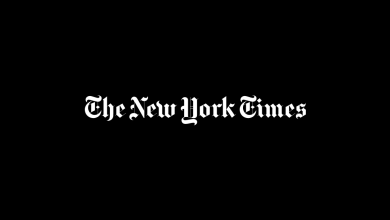Why the C.E.O. Behind Match.com and Tinder Took a Stand on the Texas Abortion Law

When Texas lawmakers this summer passed a restrictive abortion law, corporate America was largely silent. Asked to comment about one of the most divisive issues imaginable, executives who had spoken up about voting rights, gun control and climate change were conspicuously quiet.
Then there was Shar Dubey. As other C.E.O.s avoided the controversy, Ms. Dubey — the chief executive of Match Group, which runs online dating sites including Match.com, OKCupid and Tinder — confronted it head-on.
“As a Texas resident, I am shocked that I now live in a state where women’s reproductive laws are more regressive than most of the world, including India,” she said in an email to employees, while announcing she was creating a fund to support Match employees affected by the new law. “Surely everyone should see the danger of this highly punitive and unfair law.”
For Ms. Dubey, who has maintained a relatively low profile even while ascending to the top job at a company worth $37 billion, it was an unusual foray into political activism, and a reminder of the power she wields as one of the few top female executives in the technology industry.
Ms. Dubey, who was born and raised in India, has reached the top ranks of corporate America quietly. As a young woman, she studied at the Indian Institute of Technology, where the future Google chief executive Sundar Pichai was her classmate and friend. She then got her master’s in material science and engineering from Ohio State University, and worked her way up through a series of jobs, including Texas Instruments and the Princeton Review, before joining Match in 2006.
Hoping to fit in, Ms. Dubey shortened her name from Sharmistha to Shar. And in a quest to understand the United States, she watched countless hours of sitcoms after work.
Having taken over as C.E.O. of Match last year, Ms. Dubey is presiding over some of the busiest online dating sites at a moment when a pandemic-weary country is still looking for love.
“Some of our highest trafficked days are right around Christmas,” she said. “Everybody goes home, gets nagged by their family about being single, and makes their New Year’s resolutions. Some of our peak activity is a result of that.”
This interview was condensed and edited for clarity.
Can you tell me a bit about your childhood and growing up in India?
I grew up in this little town called Jamshedpur, which is in the northeastern part of India, about four hours from Calcutta. It was the first planned town of the famous Tata steel company. My dad was a professor of mechanical engineering, so we lived on campus of an engineering school. It was a bit of a bubble where everybody knew that your ticket to a better life went through a good education, and that was a big influence.
Both my parents were very ambitious for me, which was unusual. Growing up in India in the ’70s and ’80s, it was the boys who had to get educated, and the girls who had to grow up to become good homemakers. But my parents never thought I should be raised differently than my brother. My dad always said: “The first thing you’ve got to do is learn to stand on your own two feet. It doesn’t matter after that. Everything else is sort of easy.” So I studied and got exposed to the broader world, mostly through books. I always knew that there was a bigger and more interesting world out there for me to go check out.
You were one of the only women in your class at I.I.T. Was it a welcoming environment, or did you face discrimination?
Yes. I happened to become the only girl in my class of some 80 to 100 boys. I almost quit in the first week of landing there. There were these stadium seats where 20 people can sit in a row, and I would go sit on in the middle of the first row, and then everybody would move away from me because nobody wanted to sit next to me. My lab partner wouldn’t come do his labs with me.
I was like, “How am I going to navigate this? Nobody wants to talk to me. Am I going to survive four years?” And a girl who was a couple of years senior to me told me, “If you’re going to quit, who else is going to lose out? Grit it up and go figure out how you’re going to survive this.” And I did.
How did you make your way to Ohio State for grad school?
After I graduated, I went back to my hometown and got a job with the steel company. It became clear to me that the number of opportunities for me as a woman engineer in India were going to be limited. So I worked for a year, saved up money, and a year later, I saved up $800 and took my first plane ride of my life to Columbus, Ohio, on a very, very cold night. I didn’t even know where I was going to sleep that night.
What was the first kind of job that you got after graduating from Ohio State?
It was at an aerospace engineer manufacturing company in rural Pennsylvania. I happened to be the first woman engineer they had ever hired, and I was the first foreigner that they ever did an H-1B visa processing for. So that was my introduction to corporate America.
I was suddenly in charge of a shop floor that was run by people who had been there for decades, and now here’s a woman who’s supposed to tell them what to do, and she talks funny. They would let me know that I wasn’t clear enough in my conversations with them, and there was a particular supervisor who did not relish the idea of me coming in there. So it became the big motivation of my life that I was going to win him over before I was done there.
How did you go about doing that?
I realized that when people meet you for the first time they focus on all the things that are different about you. They get so distracted and hung up about all the differences that they don’t actually see the substance of what you bring to the conversation. So there were a few things that I realized I had to change.
So I did shorten my name at that time, so it was easier. And I had to work on my accent, and get up to speed on all the pop culture and references that I had missed. I didn’t know anybody in that little town of Reading, Pa., so I watched a lot of TV. I would watch all the old sitcoms from “Golden Girls” to “Cheers,” and I would get myself familiar with the words and the sayings, and the cultural references that I had no idea about. They became important conversational things that I could use to be accessible and relatable to people.
Outside of that, I figured I was going to outwork everybody. I will be the first one there and the last one out. And at the end of about a year and a half when I left, the supervisor who I had made a point of winning over cried at my farewell. That was one of the biggest accomplishments of my career.
“Taking us backward while much of the world is moving forward? That didn’t sit well with me.”
What was the hardest thing you’re dealing with as C.E.O. right now?
Maintaining the trust equity that comes with building relationships. It was an advantage for me when I became C.E.O., because I had been at the company a long time. But there were a lot more people that I’d never met. And if you don’t meet folks over time, the longer you’re stuck with not meeting in person, that trust equity gets harder and harder.
Why did you take a stand when Texas lawmakers passed their restrictive new abortion law this summer?
The company did not take a stand. I took a stand, and I tried to make that clear. I created the fund personally. I didn’t think it was the appropriate place for the company to jump in, given we are a very diverse company. We have headquarters in Texas. But when someone came and asked me specifically, what do you think about this as a woman with the life experience that I’ve had, it just didn’t sit right with me to say “no comment” on an issue that I really clearly thought was just wrong. Taking us backward while much of the world is moving forward? That didn’t sit well with me.
Match has been more welcoming of some online regulations than many of the big tech companies. Can you explain where your positions diverge?
For most ofBig Tech, privacy comes first. Apple famously doesn’t unlock a phone, even for a terrorist. We’ve always known that safety was existential for our category, because we’re introducing strangers on our platform who eventually go meet in real life. So for us it’s not only privacy, or only safety, but a balance, and it’s not always easy. If you skew in favor of privacy, you’re never going to be able to track and do the kinds of moderation, etc., that you need to do.
The in-person world, the I.R.L. world, is hundreds and hundreds of years of civilization, where we have figured out a code of conduct and behavior, rules of engagement, laws, law enforcement and all the rest. Now so much of our lives are moving online, onto this world, and we still haven’t figured out what is the right level of anonymity versus your real personas online. What is the code of behavior? What is tolerated or not? Let alone laws and law enforcement. There’s no law enforcement on these platforms. That’s the conversation that’s still happening.
Do you feel like the big tech companies are taking enough responsibility for the real-world consequences of what happens on their platforms?
It’s super challenging, and in the absence of real laws and enforcement, we’re all making stuff up. One of the things which is easier for us, as a one-on-one introduction platform, is that we have a much harder stance on bad behavior. A cuss word is enough for us to kick you out of the platform.
But I’m not sure it is right for Facebook and Twitter to be responsible for defining what is hate speech. It’s a complicated problem, which is why I think we need the trifecta of the regulators, the tech platforms and ultimately society. You and me have to decide what is acceptable and what is not acceptable in this online world, in the same way that we have, over centuries, determined what’s acceptable and not acceptable in the real world.
How has dating has changed during the pandemic?
Behavioral change is usually very incremental. But there are points in time when you do see step changes, and I think a few different step changes happened during the pandemic. A lot of people suddenly reprioritized life’s priorities and realized, “I don’t want to be locked down alone again.” They appreciated the value of a partner, and the lack of value of loneliness.
People became more realistic and honest about themselves and who they were looking for. One of the big things that came back was physical looks were less important. If that sustains, that is a good thing for humanity.




